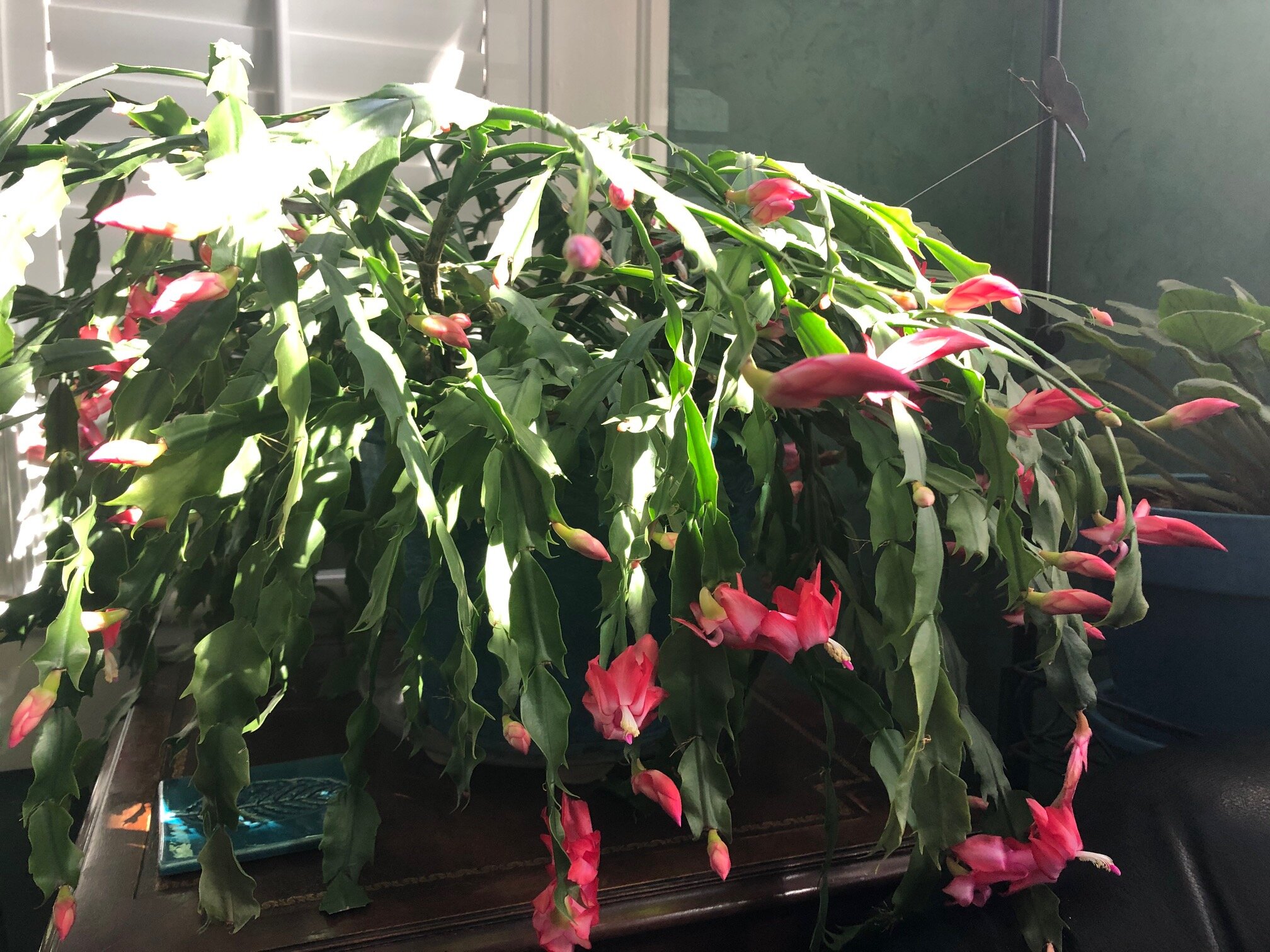(Note: Some of you might have seen a short version of this post on my social media accounts a couple of weeks ago, but I thought it was worthy of a longer version here.)
A couple of weeks ago, I was having a hard day. It was the day before the election, and national events were weighing me down. I was fretting about the hard Covid winter that we all face.
Then I walked into my den and saw the buds on my so-called Christmas cactus--it usually starts blooming late October, and some years it blooms again in spring.
This plant is more than 50 years old. It belonged to my great-grandmother. I called her Memaw [Mee-maw]. Her name was Seena Katherine Scarbrough Lewellyn Fagg, and she died in 1976 when I was 12. I have no idea how long she had the Christmas cactus before her death. My mother thinks it’s possible that Memaw brought the plant with her in the early 1960s when she and her husband retired and moved home to East Tennessee after more than two decades of living and working in Toledo, Ohio.
After Memaw died, my Mamaw, my maternal grandmother Evelyn Mae Petree Lewellyn nurtured the Christmas cactus for many years. It spent each winter in a sunny window in Mamaw’s dining room and summers on a concrete picnic table in her yard. One summer in the late 1990s or early 2000s, Mamaw gave the plant to me.
The plant was kind of pot-bound, so I got a slightly bigger pot and repotted it. It has lived happily on a table in the southeast corner window in my den ever since. It blooms reliably in the fall of each year.
The plant connects me to the women who came before me. I’ve thought a lot about them in the difficult year that has been 2020. I remember all the change and tragedy those women endured. Every time I look at this plant, I’m reminded that Seena and Evelyn carried on with life in spite of hard things.
Seena lost her first husband to tuberculosis when she was in her 20s. He left her with two little boys. The Great Depression was on, so Seena took a job in a sock factory in the city. She rode a bus to Knoxville each Monday and returned to her hometown of Maryville each Friday where her children stayed with her parents. Only lately has it occurred to me to wonder where Seena stayed in Knoxville. I imagine she probably lodged in a grim boardinghouse with other women laboring to make ends meet. Eventually Seena remarried, but the Depression continued to ravage the country, and her husband struggled to find work until Americans mobilized for World War II.
My grandmother Evelyn, Seena’s daughter-in-law, was a generation younger, but she also saw a lot of tragedy at a young age. She was only 12 when her baby sister died of diphtheria. She remembered her parents’ deep grief and the quarantine signs on the door of their family home. Her father made his living as a musical evangelist, a precarious living for sure in the Depression years when love offerings didn’t stretch very far. Evelyn persevered through many more hard things in her life.
I was privileged to know both my great-grandmothers. I was more privileged to know my grandmother well. She was devoted to her family, showering her children and grandchildren with unconditional love. She was faithful and hard-working. She loved people, and she especially loved feeding people. She was also smart, and when you least expected it, she could be funny as hell. (She probably wouldn’t approve of me saying “funny as hell,” but she’d appreciate that I appreciated that quality in her.)
Evelyn died last week, four days shy of her 97th birthday. I will miss her terribly.
Now I look at this plant, nurtured by three generations of women in my family. Women who endured a lot of hard things. Each year the plant blooms its heart out just as it has for more than 50 years. And I remember that hard things will pass. And new hard things will come, to be sure. But they, too, will pass. Seena’s Christmas cactus reminds me that life will go on.


